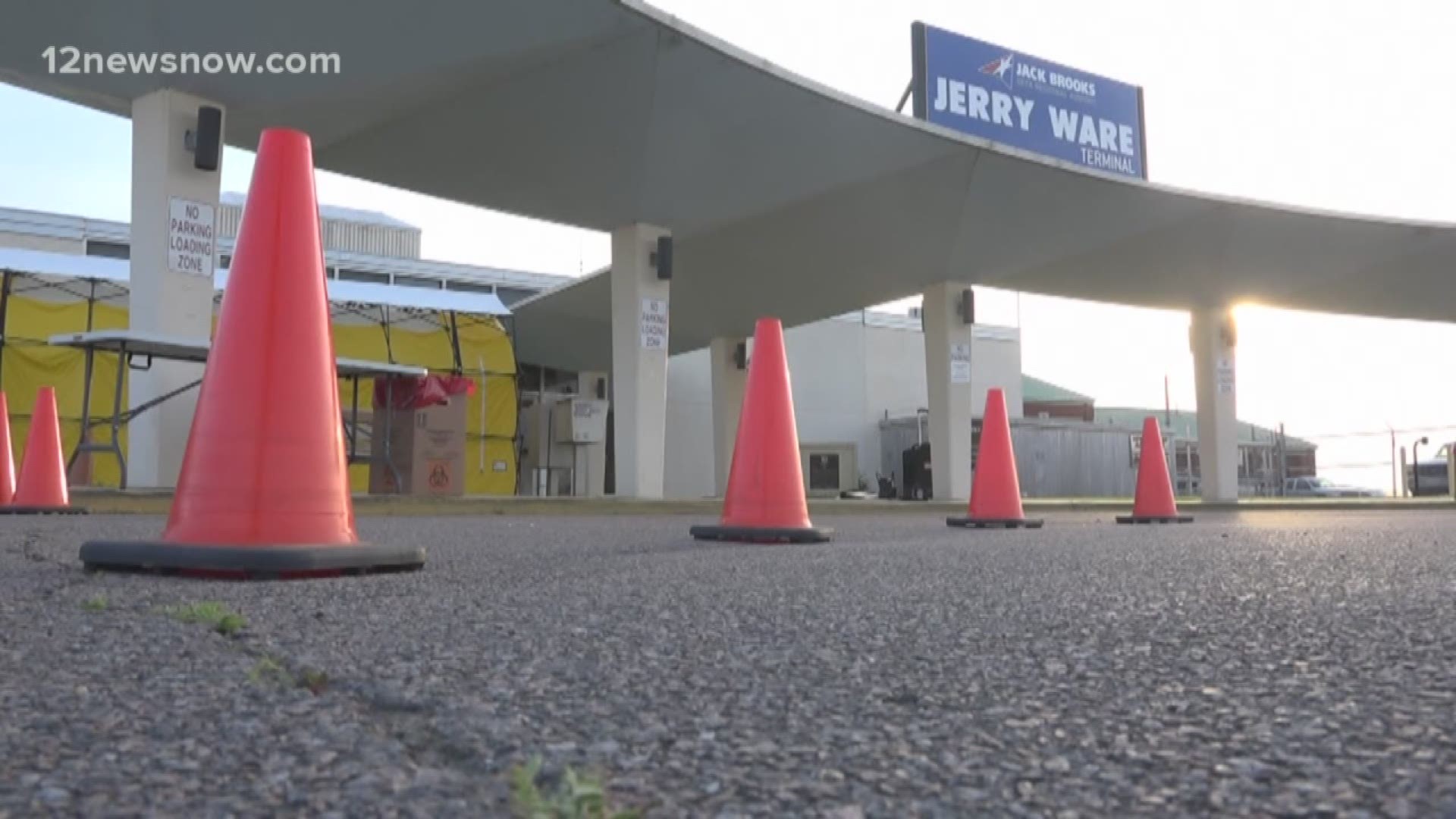JEFFERSON COUNTY, Texas — One of the biggest challenges facing COVID-19 testing efforts in Jefferson County is people who make appointments and never show up for the test collection.
According to Jefferson Judge Jeff Branick 4 to 10 people daily missed their county scheduled appointments.
These are people who don't know if they're infected and they could be infecting others.
Judge Branick says the test site averaged 115 tests a day. It never received the large volume they were expecting and preparing for.
This was one of the reasons why the 6 county Southeast Texas Regional Emergency Operations Center decided to shut down the airport testing site.
The Silsbee location will also close.
Judge Branick announced testing will now be privatized.
Individual cities and the rural counties will be responsible for connecting patients to testing locations.
"I've had people tell me they just don't like things stuck up their nostrils. It's uncomfortable. They've got to work. The reasons are just a spectrum of excuses,"
Testing is a large part of Gov. Abbott's plan to reopen Texas.
The governor has said he would like to see 2 percent of the population tested monthly.
Coronavirus symptoms
The symptoms of coronavirus can be similar to the flu or a bad cold. Symptoms include a fever, cough and shortness of breath, according to the Centers for Disease Control.
Most healthy people will have mild symptoms. A study of more than 72,000 patients by the Centers for Disease Control in China showed 80 percent of the cases there were mild.
But infections can cause pneumonia, severe acute respiratory syndrome, kidney failure and even death, according to the World Health Organization. Older people with underlying health conditions are most at risk.
The CDC believes symptoms may appear anywhere from two to 14 days after being exposed.
RELATED: VERIFY: No, members of Congress who are self-quarantined for coronavirus cannot vote remotely
Human coronaviruses are usually spread through...
- The air by coughing or sneezing
- Close personal contact, such as touching or shaking hands
- Touching an object or surface with the virus on it, then touching your mouth, nose or eyes before washing your hands.
Help stop the spread of coronavirus
- Stay home when you are sick.
- Eat and sleep separately from your family members
- Use different utensils and dishes
- Cover your cough or sneeze with your arm, not your hand.
- If you use a tissue, throw it in the trash
Lower your risk
- Wash your hands often with soap and water for at least 20 seconds. If soap and water are not available, use an alcohol-based hand sanitizer.
- Avoid touching your eyes, nose, and mouth with unwashed hands.
- Avoid close contact with people who are sick.
- Clean and disinfect frequently touched objects and surfaces.
- If you are 60 or over and have an underlying health condition such as cardiovascular disease, diabetes or respiratory illnesses like asthma or COPD, the World Health Organization advises you to try to avoid crowds or places where you might interact with people who are sick.

